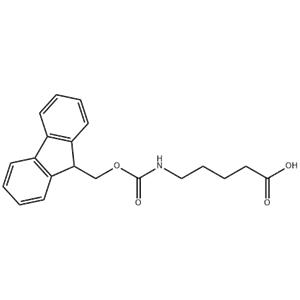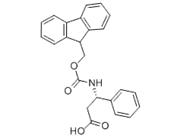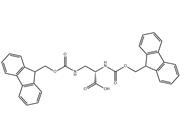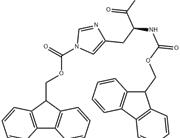Solid-Phase Peptide Synthesis:FMOC-5-aminopentanoic acid is widely used in solid-phase peptide synthesis due to its high reactivity and stability. The FMOC group allows for selective deprotection and coupling with other amino acids, enabling the synthesis of peptides with a pentanoic acid side chain at a specific position. This amino acid derivative finds use in the preparation of peptides with various functionalities, such as ligands for receptors, inhibitors for enzymes, or probes for biological studies.
Biological Assays and Drug Discovery:Peptides containing FMOC-5-aminopentanoic acid can be used in biological assays to study protein-protein interactions, receptor binding, or enzymatic activities. The pentanoic acid side chain can provide additional conformational flexibility or binding affinity to the peptide, affecting its biological activity. The FMOC group does not interfere with biological activities, making FMOC-5-aminopentanoic acid suitable for in vitro and in vivo studies. It can also be used in the synthesis of peptide-based drugs or drug candidates, where the pentanoic acid side chain can contribute to the binding affinity or pharmacokinetic properties of the peptide.
Bioconjugation and Biomaterials:FMOC-5-aminopentanoic acid can be used in bioconjugation reactions to attach peptides to other molecules or surfaces. The amino group, once deprotected, can form covalent bonds with reactive groups on other molecules, enabling the immobilization of peptides on surfaces or the preparation of peptide-based bioconjugates. These bioconjugates can be exploited in various applications, such as biosensors, drug delivery systems, or tissue engineering. The pentanoic acid side chain can provide additional stability or functionality to the conjugate, depending on the specific requirements of the application. | 
 China
China



